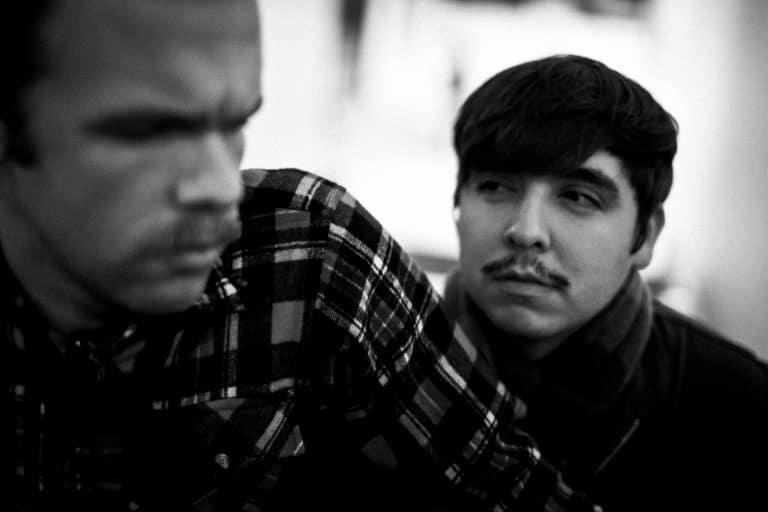
Image by Kevin N. Murphy/Flickr, Attribution-NonCommercial.
The Lie Polite Culture Tells Us About Conflict
It’s an emotional recipe I know by heart:
- Let a disappointment or frustration simmer for months, maybe even years on end.
- Check on it off and on. Stir it up a bit.
- Rationalize why it’s not done cooking — It’s really my issue to deal with, not his. It’s not worth ruffling feathers over. Nothing will change if I bring it up, so why bother? She is dealing with so much right now; I don’t want to be part of the pile-on. I don’t want to hurt her feelings. I don’t have the emotional energy. Am I making this whole thing up? I’ll say something when I have a clearer idea of how to say it perfectly.
- Finally, realize that it’s not going away and decide to stop simmering and take the risk “to serve.” The relationship is too important, the hurt too persistent. Have the conversation.
- Discover that the pay-off for being vulnerable and honest is sweet, even when messy, that your relationships are richer for these risks.
Sound familiar? I suspect I’m not the only one who puts off hard conversations far longer than I should, sometimes neglecting them so long that they fade into the ether of all those things left unsaid that become part of the texture of a marriage, a friendship, a work collaboration.
And the truth is, sometimes that’s fine. I don’t believe it’s smart or healthy to talk about every little thing. Having been in a couple of long-term partnerships with two very different humans, I’ve found plenty of moments when I’ve thought some point of difference was monumental, and then I eat a sandwich or get some sleep or remember that life is short and nothing promised, and I see the mountain for what it is — a molehill.
But other times I’ve pretended something is a molehill when it really is a mountain — something, if not dangerous, at least worth scaling. Being honest about hard shit can lead to so much goodness: it can relieve you of some unspoken fear you’ve had (he’s falling out of love, she doesn’t want to be my friend anymore, he thought I did a terrible job); it can give you new insight into yourself and the way your intentions sometimes don’t show up in the world the way you think they do; it can offer the palpable relief that comes with acknowledging some shared, even if sad or messy, truth.
There is so much goodness on the other side of discomfort, so what is it in me that fears conflict? And lately I’ve also begun to wonder, how does that fear not just deprive me of depth in my closest relationships, but make me less likely to face conflict in the public or political spheres?
As far as I can figure, I think I somehow came to believe that human relationships are more fragile than they actually are, that humans themselves are more breakable than is, in fact, true. One of the worst lies that polite culture (usually the white, Protestant, upper-class kind) teaches is that “good relationships” are nice — prizing peace over truth and the appearance of easy contentment over the experience of hard-earned understanding. I fell for that. I continue to fall for that on many days, despite the fact that evidence is all around me of the opposite.
The relationships I admire most are not steady or nice; they are genuine, imperfect, held together by unconditional love and emotional courage and a belief in the possibility of endless renewal. The people I admire most are those wise enough not to fight about everything, but to fight about and for the right things, those who don’t idealize harmony, but trust in the necessary beauty of rupture and repair.
My smart friend Katie Orenstein has said that humility is a great value, but taken too far, self-abnegation becomes selfish. If you have something to offer the world — some insight, some resource — holding back actually deprives others of something that might enhance their own lives. It’s not about you; it’s about them.
The same could be said for the great value of equanimity. It’s a powerful and necessary baseline. To pursue peace is wise, but to pursue peace when loving confrontation is actually what’s needed is foolish. It deprives both you and the person you’re in a relationship with of discovering the endurance of your emotional bond. Humans are shockingly resilient; their relationships, no less so.
Maybe, just maybe, the polite culture’s misguided lesson about doggedly pursuing peace, or at least the appearance of it, also shows up in our public lives. Maybe we shirk talking with people who vote for different political candidates or worship different gods because we haven’t developed the muscles to weather disagreement with those in our most intimate spheres. As this political moment is teaching me, as my personal life so often has, the losses of single-mindedly protecting peace above all else are epic.
I aim to grow up, to disavow the polite culture and its unhealthy, inaccurate lessons about human relationships. I aim to pretend I am made of heartier stock until I actually feel it in my backbone. I aim to step into conflict more often, earlier, with more trust in myself, those I love, maybe even those I am supposed to hate.

